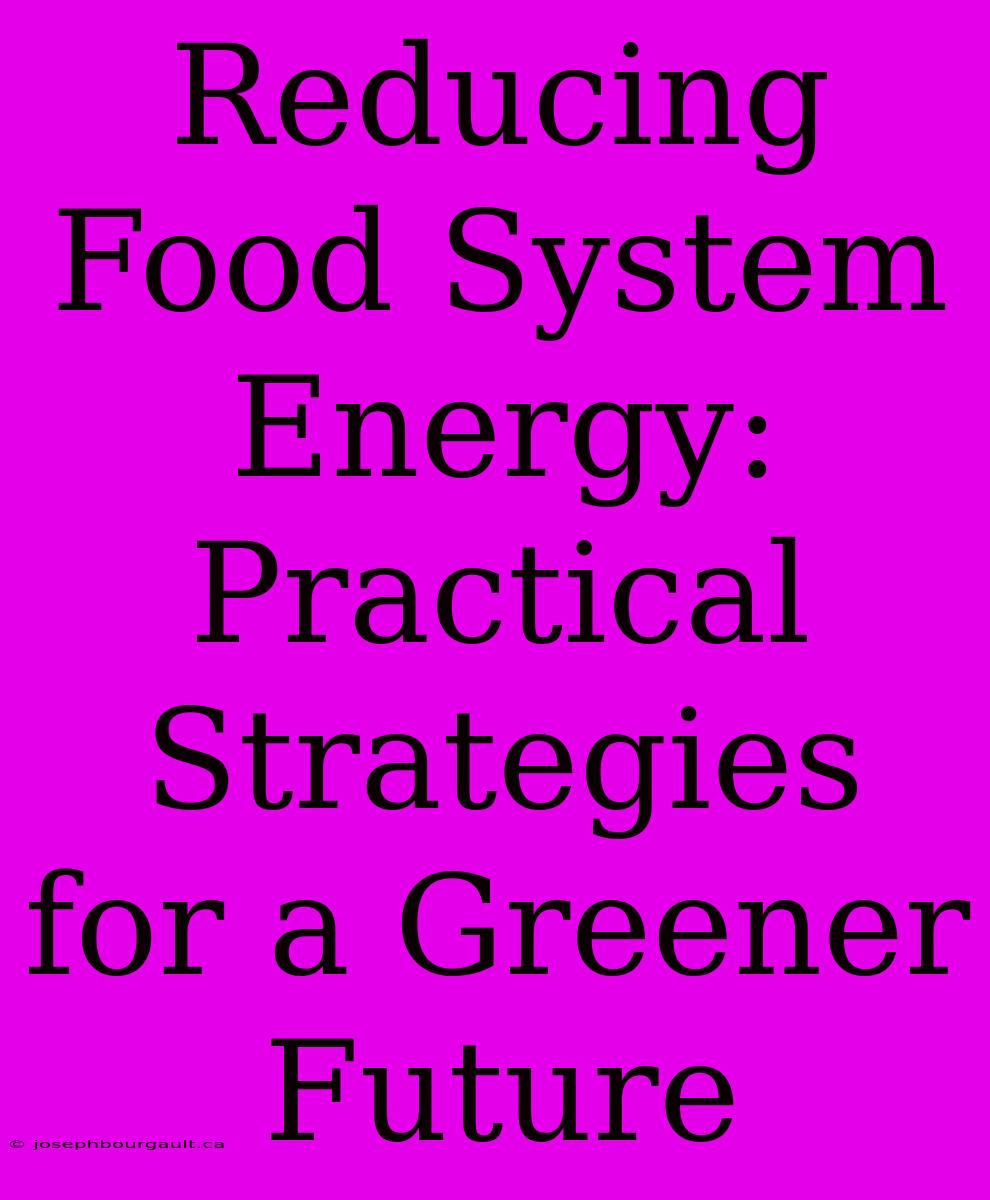Reducing Food System Energy: Practical Strategies for a Greener Future
The food system, from farm to table, consumes a staggering amount of energy, contributing significantly to climate change. Reducing our food system's energy footprint is crucial for a greener future. While it may seem daunting, numerous practical strategies can help us achieve this goal.
Understanding the Food System's Energy Consumption
Before diving into solutions, let's first understand the energy hotspots:
- Agriculture: Producing food involves energy-intensive processes like fertilizer production, irrigation, and livestock farming.
- Processing and Packaging: Transforming raw ingredients into consumer products requires energy for machinery, refrigeration, and packaging.
- Transportation: Moving food from farm to plate involves substantial energy consumption for trucks, ships, and planes.
- Waste: Food waste contributes to energy loss in both production and consumption, with rotting food releasing harmful greenhouse gases.
Strategies for Reducing Energy Consumption
Here are some practical strategies we can adopt to reduce the food system's energy footprint:
1. Promote Sustainable Farming Practices:
- Organic Farming: Reduces reliance on synthetic fertilizers and pesticides, lowering energy consumption in their production and reducing environmental impact.
- No-Till Farming: Minimizes soil disturbance, preserving soil health and reducing carbon emissions.
- Precision Agriculture: Utilizes technology to optimize irrigation, fertilizer application, and pest control, leading to more efficient resource use.
- Crop Rotation: Improves soil fertility, reducing the need for fertilizers and enhancing overall efficiency.
2. Optimize Food Production and Distribution:
- Local Food Systems: Shortening the distance between producers and consumers reduces transportation energy consumption and promotes community-based food production.
- Vertical Farming: Growing crops in stacked layers within urban environments minimizes land use and reduces transportation needs.
- Improved Storage and Logistics: Efficient warehousing and cold chain management minimize food waste and energy consumption.
3. Encourage Responsible Consumption:
- Reduce Food Waste: Adopt mindful shopping habits, plan meals effectively, and practice proper food storage to minimize waste.
- Eat Seasonally: Prioritize foods that are in season, minimizing transportation costs and supporting local producers.
- Choose Plant-Based Options: Meat production is energy-intensive, shifting towards a more plant-based diet can significantly reduce energy consumption.
- Support Sustainable Businesses: Choose food producers and retailers that prioritize sustainable practices and energy efficiency.
4. Technological Advancements:
- Renewable Energy Sources: Leveraging solar, wind, and hydro power for food production and processing reduces dependence on fossil fuels.
- Energy-Efficient Equipment: Utilizing energy-saving appliances and technologies in food processing and transportation can significantly reduce energy consumption.
- Smart Agriculture: Utilizing sensors, data analytics, and artificial intelligence to optimize farm operations and improve resource efficiency.
The Collective Effort for a Greener Future
Reducing the food system's energy footprint requires a collective effort. Governments, businesses, and individuals must work together to implement these strategies. By embracing sustainable practices and adopting a more conscious approach to food, we can significantly contribute to a greener future.
This change is not only about reducing our environmental impact; it's also about building a more resilient, equitable, and sustainable food system for generations to come.

